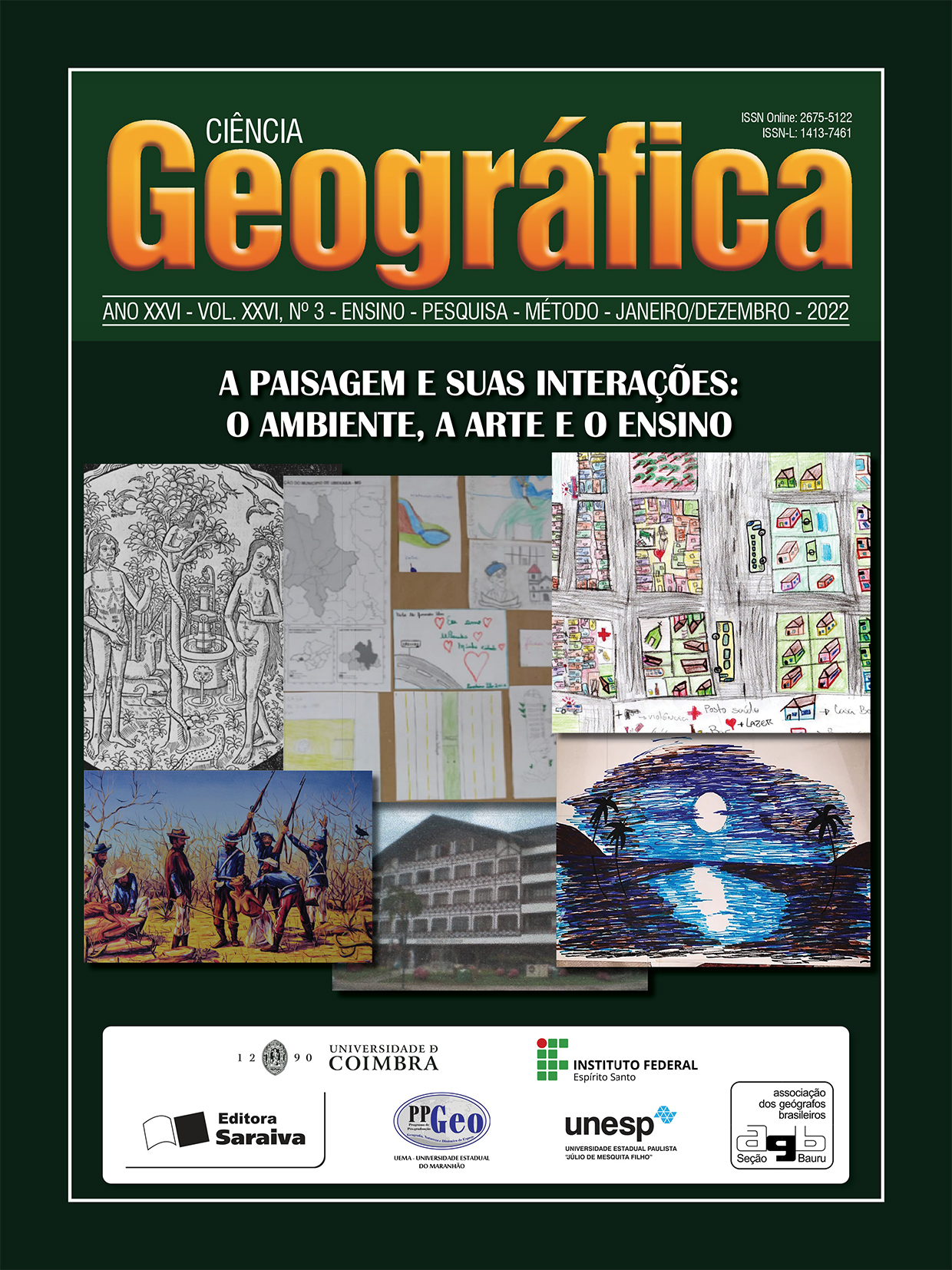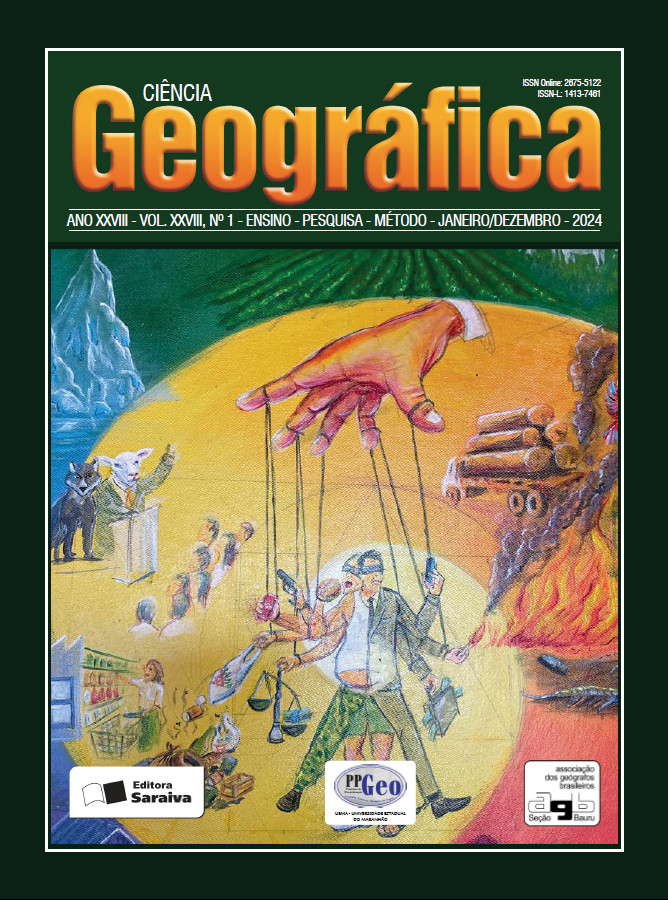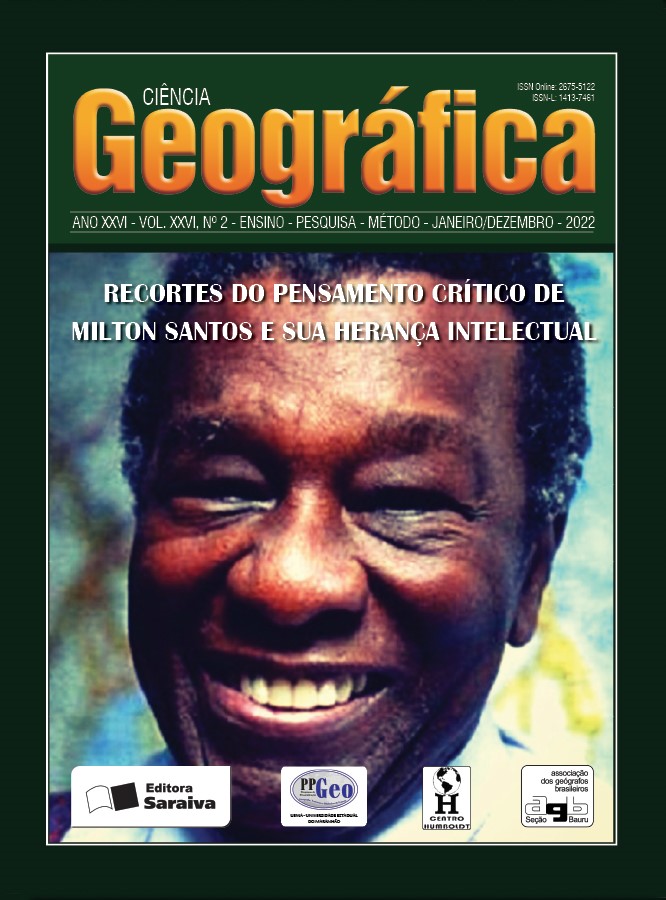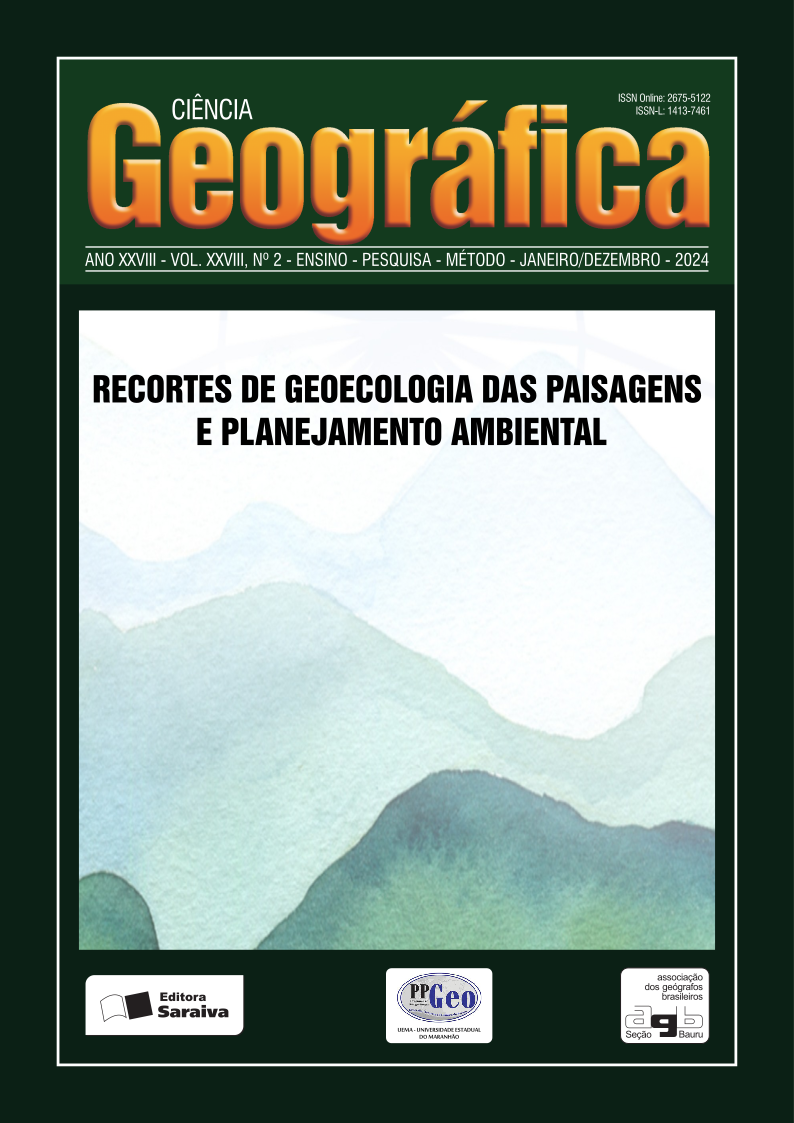Archives
-

Revista Ciência Geográfica
Vol. 29 No. 3 (2025)As configurações do espaço geográfico: desafios socioambientais, epistemologia crítica e o ensino de Geografia
-
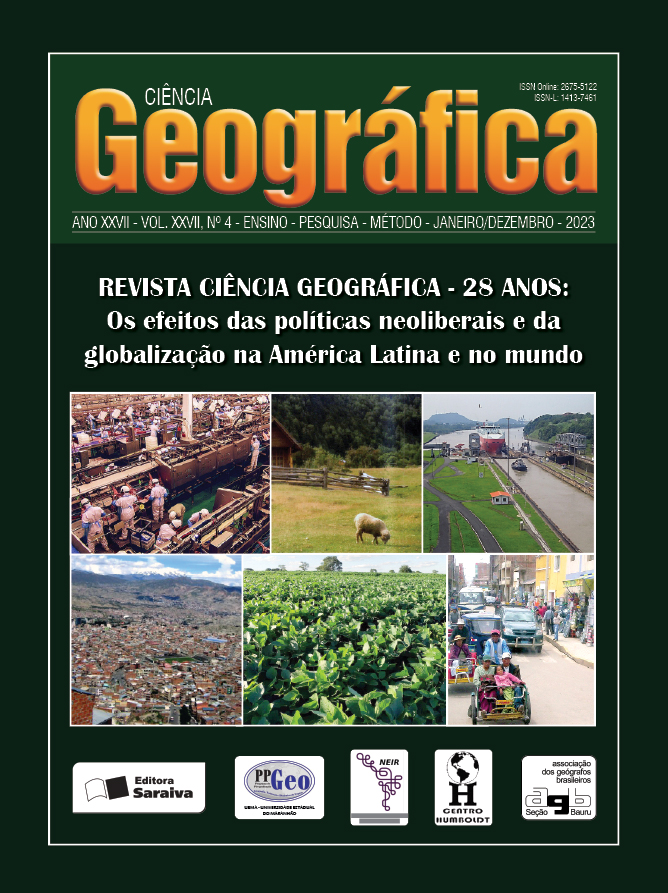
REVISTA CIÊNCIA GEOGRÁFICA 28 ANOS: OS EFEITOS DAS POLÍTICAS NEOLIBERAIS E DA GLOBALIZAÇÃO NA AMÉRICA LATINA E NO MUNDO
Vol. 27 No. 4 (2023)Com a missão de se tornar um veículo de divulgação da Geografia Crítica Latino-Americana, e construído pelo esforço coletivo de geógrafos(as) brasileiros(as) e argentinos(as), agregados(as) em torno do Centro de Estudios Alexander von Humboldt (Buenos Aires) e da Associação dos Geógrafos Brasileiros, Seção Local Bauru – SP, a presente edição da Revista Ciência Geográfica apresenta 26 artigos sobre OS EFEITOS DAS POLÍTICAS NEOLIBERAIS E DA GLOBALIZAÇÃO NA AMÉRICA LATINA E NO MUNDO.
Finalizamos um ano polêmico, de vitória e fracassos. Portas que se abrem ou que se encerram, diluindo-se entre tantas iniciativas e propostas de um 2023 que, certamente, ficará marcado entre nós como o grande ano nas mil e uma contradições latino-americanas.
Em política, uma visão redutora se paga com a liberdade. No presente século, o totalitarismo nos deu inúmeros exemplos disso. O que ocorre nos fenômenos sociais também se produz nos demais âmbitos em que se exerce a inteligência humana. O enfoque simplificador revela-se esterilizador em todas as partes, porque fixa arbitrariamente o que, na realidade, muda incessantemente, porque separa o que por si está unido, desconfia do caótico, do contraditório e do aleatório — que, porém, estão inscritos na natureza das coisas.
Esse enfoque conduz, necessariamente, a becos sem saída, que só podem ser superados mediante um esforço constante para ir do mais simples ao mais complexo. O processo do conhecimento não é mais do que essa aprendizagem, progressiva e ilimitada, dos segredos do real. Aprendizagem que, constantemente, o comum dos mortais tem podido dispensar, contentando-se com a obviedade do “senso comum”.
Mas como afirmou Edgar Morin, não é mais possível deixarmos apenas aos sábios (elite da academia, gestores das corporações e políticos) o privilégio do pensamento complexo e continuarmos a pensar o simples. A complexidade, a simulação, o virtual e os simulacros devem se tornar a forma de pensar cotidiana de todos nós, pois elas tornaram-se a própria matéria de nosso dia a dia.
Portanto, será que neste século XXI estaremos destinados a viver as metáforas do mundo, ou seja, um mundo da simulação e do simulacro no qual o que aparece não é o que aparenta ser? É a vida que nos intima a resistir ao fácil e enfrentar esse desafio, sob pena de perdemos o fio do real e voltarmos a cair na armadilha de novos totalitarismos. Ontem no Brasil, hoje na Argentina!
E a revista? A revista tem esse objetivo reflexivo: podermos ser, dizendo-nos, representando-nos. O espaço nos pertence!
Foz do Iguaçu, 22 de dezembro de 2023.Zeno Soares Crocetti
Universidade Federal da Integração Latino-Americana. Instituto Latino-Americano de Tecnologia, Infraestrutura e Território. Foz do Iguaçu/Paraná/Brasil. Coordenador do Núcleo de Estudos Estratégicos Ignácio Rangel (NEIR). -
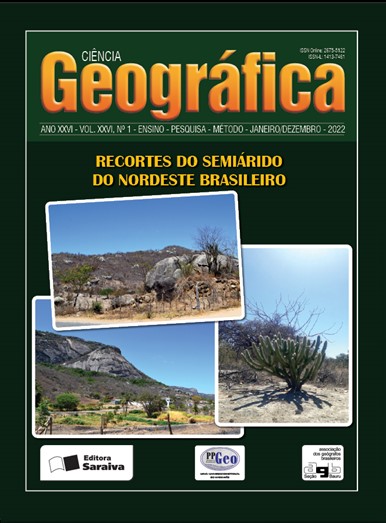
RECORTES DO SEMIÁRIDO DO NORDESTE BRASILEIRO
Vol. 26 No. 01 (2022)Um novo número da Revista Ciência Geográfica, desta feita o n°1/2022, volume XXVI, está à disposição da comunidade geográfica brasileira e alhures. Há mais de vinte e sete anos, a Associação de Geógrafos Brasileiros (AGB), Seção Bauru, vem realizando a hercúlea, mas gratificante, tarefa de produzir, divulgar e popularizar o conhecimento geográfico elaborado no Brasil e em terras outras do planeta. O leitor irá entrar em contato, neste número, com trinta artigos que se encontram distribuídos em dois eixos fundamentais. São mais de quinhentas e oitenta páginas que abordam científica e verticalmente tantos temas fascinantes e motivadores da Geografia. O primeiro eixo volta-se inteiramente à Análise Regional, um dos pilares da Geografia, de uma importante macrorregião brasileira, o Nordeste. O segundo contempla temas de expressiva importância de Geografia Geral, retomando, assim, a divisão da Geografia Clássica, que permanece salutar, sobretudo para o processo ensino e aprendizagem da “Ciência de Humboldt”, sem que se desconstrua, sob nenhuma hipótese, o aforismo “A Geografia é uma só”! Em treze artigos, redigidos a convite dos editores da Revista Ciência Geográfica, esquadrinham-se temas de natureza eminentemente geográfica que estão presentes em áreas individualizadas, paisagens singulares, de uma “Região de contrastes”, parafraseando aqui, com a devida vênia, o que afirmou o geógrafo nordestino Manuel Correia de Andrade. O Nordeste brasileiro, com seus mais de 1.600.000 km², pleno de contrastes físicos, sociais e econômicos constitui-se de realidades que fascinam autores das mais diversas formações acadêmicas. Desde ou até bem antes de Euclides da Cunha, pesquisadores estudaram e continuam estudando esse espaço regional, a partir de óticas metodológicas, ideológicas, políticas e com o emprego das mais diferentes técnicas. Impossível esgotar a análise desse espaço regional no qual teve início a colonização da Terra Brasilis.
A estruturação natural de paisagens da Zona da Mata pernambucana, padrões de relevo no Cariri Pernambucano, Dinâmica Geoambiental do espaço agrário do Brejo Paraibano, Desertificação no semiárido sergipano, Agroecossistemas familiares e Energias renováveis são alguns dos temas presenteados, nesse eixo, ao leitor interessado em melhor compreender a dinâmica do espaço nordestino brasileiro. Espera-se que este número da Revista Ciência Geográfica seja útil à práxis de estudantes, professores de Geografia da educação básica superior e geógrafos, e os auxilie a uma melhor compreensão da realidade para que se possa transformá-la, beneficiando toda a sociedade brasileira.
Prof. Dr. Lucivânio Jatobá
Departamento de Geografi a - UFPE


